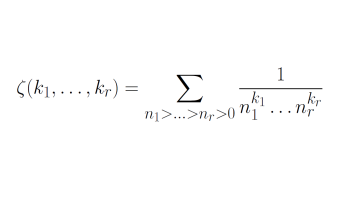Low-dimensional quantum Yang-Mills measures
Abstract
Yang-Mills theory plays an important role in the Standard Model and is behind many mathematical developments in geometric analysis. In this talk, I will present several recent results on the problem of constructing quantum Yang-Mills measures in 2 and 3 dimensions. I will particularly speak about a representation of the 2D measure as a random distributional connection and as the invariant measure of a Markov process arising from stochastic quantisation. I will also discuss the relationship with previous constructions of Driver, Sengupta, and Lévy based on random holonomies, and the difficulties in passing from 2 to 3 dimensions. Partly based on joint work with Ajay Chandra, Martin Hairer, and Hao Shen.


